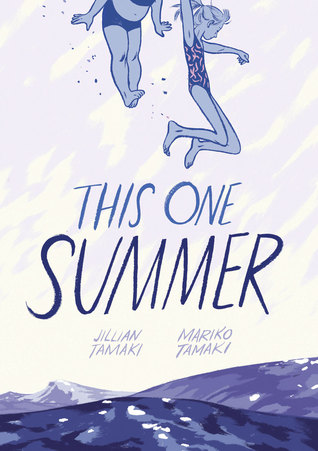
Coming-of-age stories are really hard to get right. You have to walk a line of being nostalgic without being indulgent; sincere without being mawkish; funny without being twee. This One Summer pulls this off really ably.
A collaboration between two cousins, Jillian and Mariko Tamaki, TOS tells the story of a girl, Rose, who spends a summer at her parent’s Canadian beach house. As a complete aside, do all North Americans have access to a beach house? It’s one of those cultural markers we see in every single imported TV show, like high school corridors lined with lockers and calling tortoises ‘turtles’ even though they’re clearly bloody not.
ANYWAY, there are two things that combine to make this a really compelling book, each contributed by a different Tamaki.
The first is the storytelling. The main character, Rose, is just starting to enter her adolescence, and the book is really about the subtle emotional shifts that that entails, and how she struggles to balance her adult self with her child self. Her best friend, Windy (yes, Windy. I know) serves as a useful counterpoint – she’s a year and a half younger, and so still very much in the ‘child’ stage of life – to her parents, who are dealing with more adult issues that are kept opaque and mysterious to her. Mariko Tamaki is responsible for the writing, and the careful sense of disorientation, and illumination of the complex messages about sex and identity that are thrown at young girls, is brilliantly paced, with great depth beneath every small interaction.
The second is the artwork. Jillian Tamaki takes the visual helm, and she does it with real elegance. The illustrations are all done in shades of dark blue, which lends the air of nostalgia to the whole piece, as well as representing the sea, which is symbolic here of Rose’s changing stage in life. The scenery is lushly filled and detailed, serving as a nice balance against the more simplistic Manga style of the characters’ faces. It is beautiful drawing.
The book itself is aim at a Young Adult audience, so some adult readers might be put off it for that reason. But there’s plenty here for adults to enjoy too, whether it’s evoking memories of our own awkward transitions or just to see a story well told.
--
This is my sixth book review of 100 to raise money for Refuge, the domestic abuse charity. If you liked this review, or just want to help out, please donate on the link below!
Comments
Post a Comment